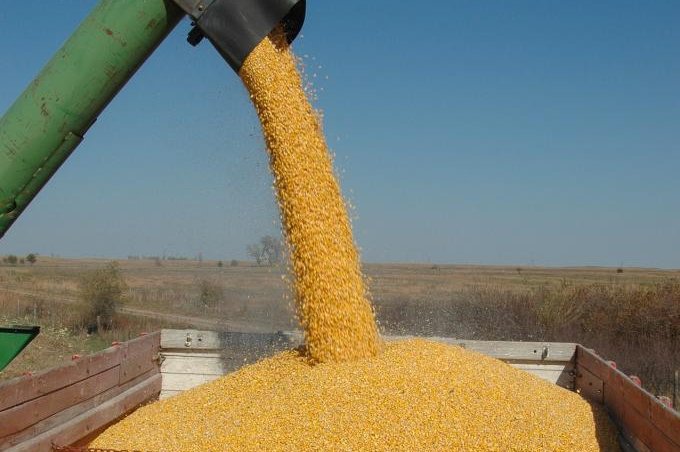Farm and biofuel groups are asking for a court review of an Environmental Protection Agency decision to grant 31 small refineries waivers from the Renewable Fuel Standard. Photo courtesy of Pixabay
EVANSVILLE, Ind., Oct. 25 (UPI) -- A handful of farm and biofuel groups have petitioned a federal court to review the Environmental Protection Agency's decision to grant 31 small oil refineries waivers from the Renewable Fuel Standard.
That August decision, the groups say, was made in secrecy -- and the EPA never provided evidence that the waivers were permitted under federal law.
"There was no transparency around the exemption process," said Geoff Cooper, CEO of the Renewable Fuels Association, one of six groups that filed the petition. "The public has no idea how or why the exemptions were made."
The Renewable Fuel Standard is a federal program that requires transportation fuel sold in the United States to contain a minimum volume of renewable fuels. It does this by requiring American oil refineries to blend a certain amount of those fuels into their products.
However, small refineries that demonstrate "disproportionate economic hardship" can be exempted temporarily from the requirement.
The "EPA's entire decision document was only two pages long," the coalition -- which includes the American Coalition for Ethanol, Growth Energy, National Biodiesel Board, National Corn Growers Association, National Farmers Union and Renewable Fuels Association -- said in a news release.
"The brief document does not reveal any details and contains only the most bare-bones reasoning for EPA's decision."
The EPA responded that "many aspects of the decisions for exempting individual refineries are based on confidential business information."
"EPA continues to implement the Renewable Fuel Standard program in accordance with the Clean Air Act, taking into consideration additional direction from Congress, recommendations from Department of Energy and relevant court decisions," the agency said in an emailed statement.
The group's petition will be reviewed by a panel of judges at the U.S. Court of Appeals for the District of Columbia, which will determine if the EPA decision violated any laws.
The EPA grants such waivers every year, but the number has more than tripled under the Trump administration.
Between 2013 and 2015 -- the three years the Obama administration granted waivers -- the EPA received 41 applications from small refineries. It granted 23. During the three years the Trump administration reviewed the waivers, the EPA received 93 applications and granted 85.
"The number of requests went up and the approvals went way up," Cooper said. "We believe it was because the refineries knew they had a friend in the EPA."
After the EPA released the list of 2018 waivers, corn and ethanol prices plummeted and several ethanol plants closed or reduced their production.
At the time, farm and ethanol groups released strongly worded statements criticizing the decision.
"Our industry invested billions of dollars based on the belief that oil could not restrict access to the market and EPA would stand behind the intent of the Renewable Fuel Standard," Jeff Broin, CEO of POET, America's largest ethanol producer, said in a statement.
POET was among the first ethanol companies to close a plant, blaming the waivers.
"Unfortunately, the oil industry is manipulating the EPA and is now using the RFS to destroy demand for biofuels, reducing the price of commodities and gutting rural economies in the process," Broin said.
After hearing the outcry, President Donald Trump said his administration would create a plan to address the reduced ethanol demand. In October, the administration announced that the EPA would reallocate the waived gallons to the larger refineries. In doing so, the overall volume of biofuels blended in America's fuels would remain constant.
Farm and ethanol groups cheered the decision, but less than two weeks later, the EPA rolled out a plan that farmers said is not the deal they were promised.
The change came in how the EPA would calculate the volume of waived fuel. In the initial plan, officials said they would estimate the number of gallons exempted in the coming year by taking a three-year average of the exemptions the EPA already made, and then redirect that volume of fuel to other refineries.
However, the new proposal uses a three-year average of what the Department of Energy recommended the EPA waive -- which is roughly half the amount of fuel the EPA actually waived.
The EPA said it decided to use the DOE's recommendations because it might follow them next year.
The fuel and ethanol coalition, which filed the petition Tuesday, said the administration's attempt to redirect the waived gallons does not make up for the EPA's decision to waive them in the first place.
"Even as the Trump administration indicates it is taking steps to account for future small refinery exemptions, the coalition remains concerned that EPA's abuse of the small refinery program diverges from the spirit and letter of the Clean Air Act," the coalition said in a statement.
"From a substantive and procedural perspective, this is not the way for a federal agency to make such a momentous decision."















